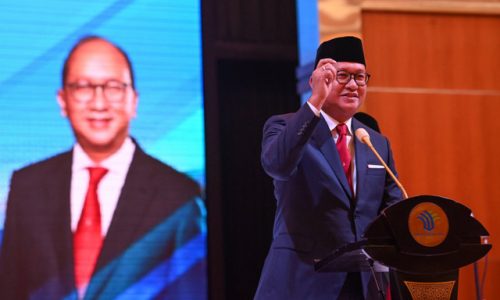The September 2023 G20 Summit in New Delhi marked the conclusion of the Indian G20 presidency and the culmination of Indonesia’s troika role, ushering in a new phase of global governance. Indonesia’s presidency, which began in December 2021, was succeeded by India’s leadership in December 2022.
During their G20 presidencies, both Indonesia and India made significant strides, guided by the distinct approaches of their respective leaders. Indonesian President Joko Widodo’s pacifist stance was evident in his handling of global crises, including the Ukraine conflict, while Indian Prime Minister Narendra Modi emphasized diplomacy and collective action, engaging proactively with countries like Russia and Ukraine.
Amid the challenges of what some have termed the most demanding G20 meetings to date, Indonesia stood firm on issues related to Russia. Under Widodo’s leadership, Indonesia managed to forge consensus among G20 leaders and shift the focus toward common ground, reaffirming the forum’s economic core.
A key aspect of both presidencies was a commitment to stakeholder engagement, extending to students, civil society, businesses, and various engagement groups. In India, Modi’s G20 messages reached millions through a range of publications. The diverse G20 events, including cultural and culinary programs, transcended New Delhi, spanning 56 cities.
These comprehensive engagement efforts allowed domestic priorities to take center stage. Indonesia initiated the Supreme Audit Institutions 20, connecting domestic debates on audits and accountability. India introduced a start-up engagement group, particularly focusing on youth.
Leaving a global mark
Both presidencies left a significant mark in key areas of global concern. Indonesia prioritized the energy transition and finance, championing the need for a global shift to clean energy. Indonesia crafted a framework for an equitable, affordable, and inclusive energy transition, aligning with G20 priorities.
India led the G20 Chief Scientific Advisers’ Roundtable, emphasizing the importance of scientific expertise to address global challenges. India also introduced the Mission Lifestyle for Environment (Mission LiFE) to drive individual behavioral changes.
Additionally, the Indonesian G20 presidency established a financial intermediary fund to address pandemic prevention, preparedness, and response, highlighting the critical need for coordination and capacity building. This effort gained special significance against the backdrop of the COVID-19 pandemic.
Both Indonesia and India pushed for global benefits that extended beyond G20 member states. Indonesia initiated 361 cooperation projects valued at approximately US$ 238 billion. These projects ranged from constructing an agricultural training center in Fiji to providing disaster management training to the Caribbean Community (CARICOM).
India introduced the Disaster Risk Reduction Working Group, focusing on managing disaster risks, building resilient economies, and addressing the increasing frequency and intensity of extreme weather events.
Further, both countries underscored the importance of reforming Multilateral Development Banks to support developing nations and advance the Sustainable Development Goals. Addressing issues such as profit shifting, international tax regulation, illicit financial flows, and the digital economy was a shared priority. The Indonesian G20 presidency called for increased tax revenues and comprehensive tax reforms, including digital taxation and gender-inclusive taxation.
Promoting inclusivity was at the core of both presidencies. Indonesia’s vision of “leave no one behind” led to the invitation of nine countries and intergovernmental organizations to participate in G20 events. India took an inclusive and action-oriented approach, with Prime Minister Modi proposing making the African Union the 21st member of the G20 during the New Delhi summit, which witnessed the largest-ever G20 contingent, with 43 delegations.
The G20’s role in global governance remains vital as it navigates international cooperation to achieve the Sustainable Development Goals. The leadership of Indonesia and India has set a positive trajectory, fostering hope for more effective global governance in the years to come.









